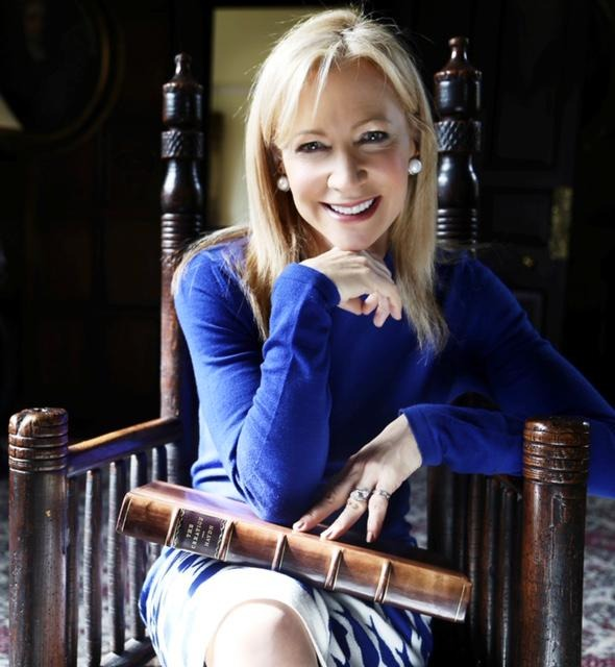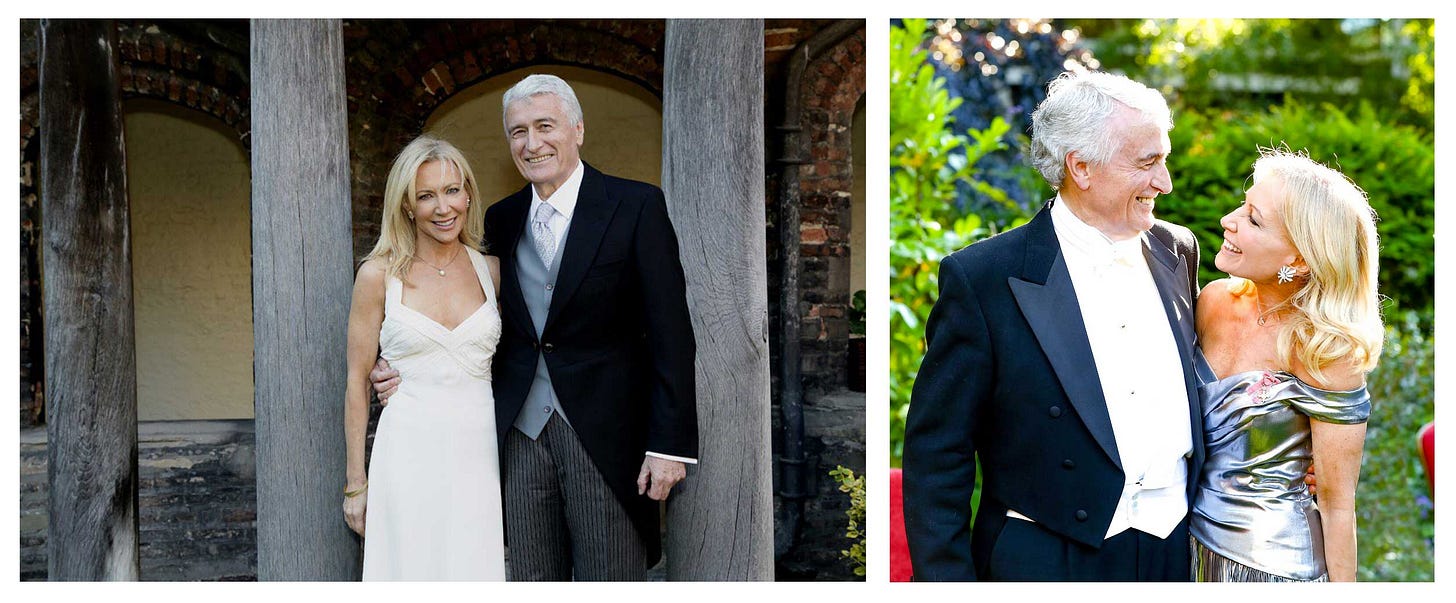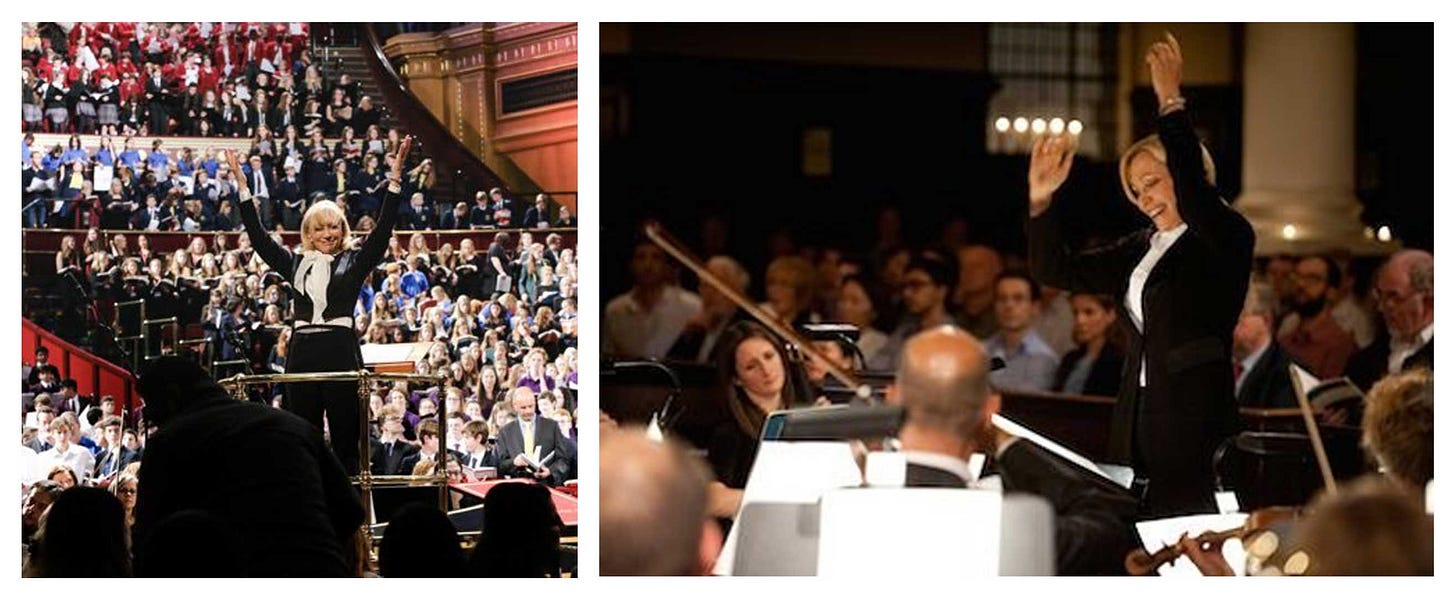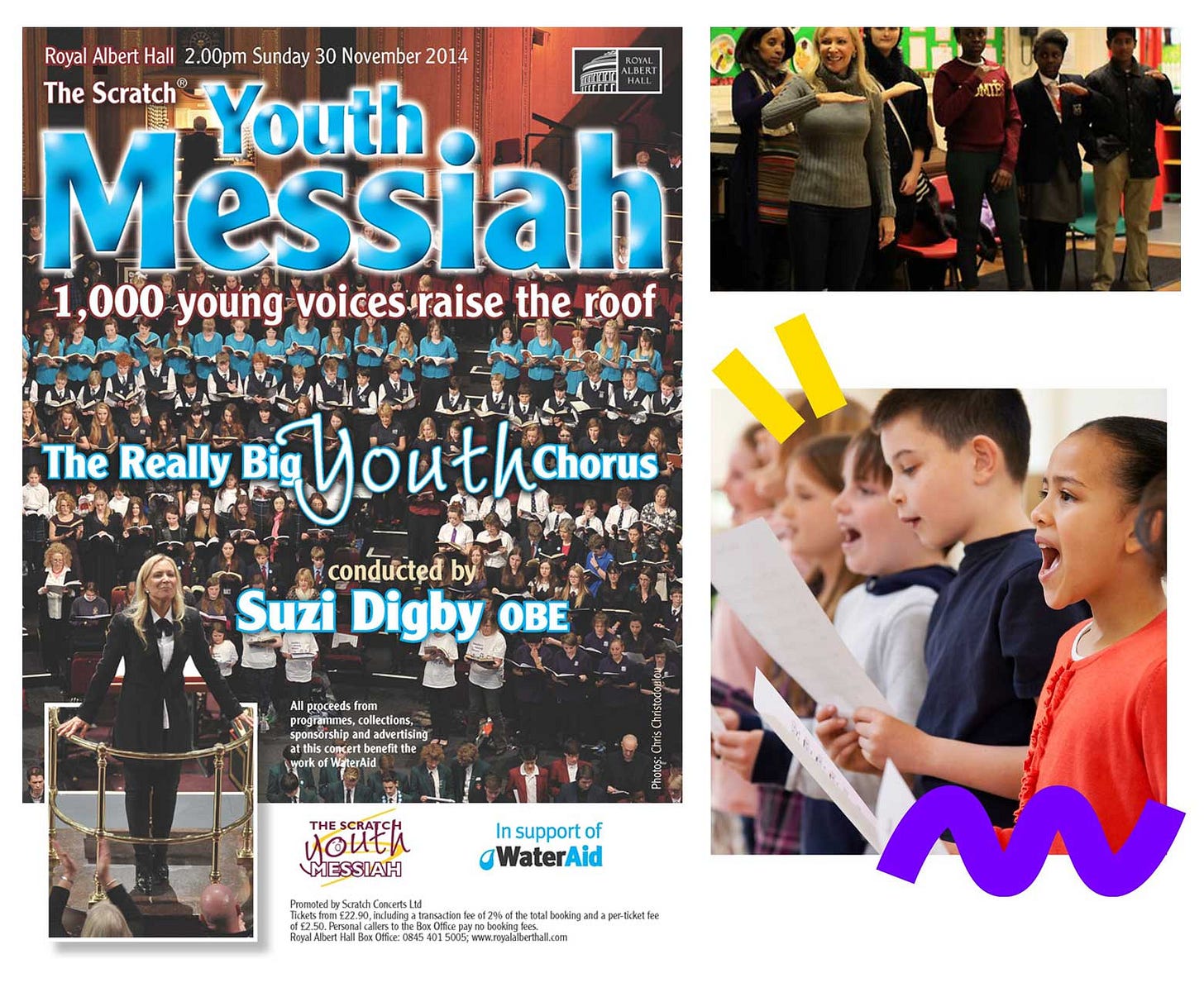UNITING THE WORLD WITH MUSIC AND SINGING - WITH MY GUEST – SUZI DIGBY OBE, BARONESS EATWELL
SMITTEN BY FAITH ISSUE # 0012 October 23rd 2021
I don't have enough words to properly describe and do justice to this phenomenon who is my friend and guest this week, SUZI DIGBY OBE, BARONESS EATWELL. Suzi is an internationally renowned and much beloved choral conductor and music educator whose music trail-blazing has touched millions of hearts – especially the young - in the far corners of the world. Music and choral singing have been and are at the heart of Suzi’s very existence and happiness – passions which have led her as a young student to read music at King’s College in London and now to her energetic choral conducting and music education. Since her birth and childhood in Japan, Suzi has lived a very colourful life in Mexico, the Philippines, Hong Kong ( where we first met in the eighties – a friendship that has never waned ) and now back in the UK. Suzi’s cheery beautiful personality lights up an entire room; and when she lifts up her baton to conduct her choir, there is a total hush in the room as her audience sits mesmerized and transformed by the purity and elegance of the many voices singing together. Of course, music and choral singing can be religious or secular. But, whenever I hear wonderful choirs singing together, I feel that I come into God’s presence.
Suzi Digby OBE, Baroness Eatwell - sitting on the actual chair of Erasmus at Queen’s College Cambridge. On her lap is the FIRST edition of Haydn’s Creation with Haydn’s own stamp on it.
Suzi with her charming husband, the well-known economist, Lord John Eatwell
In 1990, Suzi was awarded a Winston Churchill Fellowship which she used to travel and study in Finland, Hungary, Canada and the United States, focusing on methods of choral training and music education. As you will read in the interview below, this led to Suzi’s next step which was to found a national music education charity, ‘The Voices Foundation’. After that there was no stopping this bundle of energy and compassion that is Suzi Digby and the Voices Foundation Children’s Choir, a multi-ethnic choir comprised of children from the U.K. has since performed everywhere in the UK and Europe. Suzi’s many other programs with music and singing are too numerous to name. Here are just some : musical director of Rosslyn Hill Chapel Choir, director of the Middlesex Bach Choir, the Singing Schools Program in South Africa; council member of the Winston Churchill Memorial Trust; founder and artistic director of many choir groups including the Ora Singers, the Bristol-based children’s opera group and recently as the official choir director of the Rolling Stones ! As a conductor, Suzi has performed in some of London’s most prestigious concert venues including the Royal Albert Hall, St James’s Piccadilly and the Royal College of Music. Abroad, she is guest conductor of St. Stephen’s Oratorio Choir in Budapest. She regularly commissions works by leading composers and is in great demand to judge at international choral festivals and competitions. Together with her husband, Lord John Eatwell, the prominent British economist, Suzi joined the USC ( University of Southern California) faculty in 2011. Suzi is part of the USC Thornton School of Music as an instructor in English choral literature and in addition to teaching, she is involved with a variety of artistic and educational endeavours within USC Thornton.
Today, I am thrilled and delighted to present this interview with Suzi Digby which includes a link to listen to the recent magnificent performance of the Ora Singers at the Tate Modern. Thank you Suzi !
INTERVIEW WITH SUZI DIGBY OBE , BARONESS EATWELL
Kuala Lumpur and Bath, UK ( an interview conducted via Voice Messaging )
Joan : Let’s start with the very delightful talk you gave in 2015 at the China Exchange in our beloved Hong Kong where you spoke so passionately about ‘The Secret Power of Music’. When our dear friend, the unflappable late Sir David Tang introduced you, he rightly described you as a Tsunami in terms of how you have influenced and enabled music and singing to grow for the masses. Please tell us more about the power of music on our spirits and intellect.
SUZI : Music is the one thing that universally connects everyone; a sort of universal recognition of great beauty in music. For me it’s been absolutely at the centre of my world since as long as I can remember. I don't know what it’s like not to be a musician. What I observe in audiences and people in general - there is a common soul and this can be tapped into by the greatest music ever written. Great composers have this genius to be able to write music of such power and beauty that it is recognized throughout the world, no matter what religion or culture. I remember the piece which first blew my mind – in fact – it blew my world apart – and that was the Matthew Passion of Bach which I performed when I was very young. It was in German; I didn't even know what the words meant. But the music itself enabled me to relate to my world and the universe. The power of music challenges me in that respect. I feel passionately that particularly in the case of young minds and souls, when they are united to great music, they can access dimensions that nothing in their young lives can ever do.
Joan : Through the many years that have whizzed by, you have encouraged so many young people - millions of children - in the UK and even as far away as South Africa whose hearts you have touched with your unique music education. Do tell us more about your work with teachers in music education and encouraging young people to sing. The second part of this question ( sorry - this could be a long one ) - could you also cross the ocean with me to South Africa and tell us about your amazing ‘Singing Schools’ Project there.
SUZI : Ever since I was very young, I could see how singing could really enhance self-esteem. I became fascinated by the impact of singing on young people and the full potential of this particularly if done through a structured methodology. All my life, I have sung in choirs and I have been really drawn to working with young children. I love young children and the one way that I can make them feel better about themselves is through my own skill in singing. Increasingly, I started to work with children and observing the power and impact on their self-esteem and social skills that singing together had. The real breakthrough came when I got my Winston Churchill Travelling Fellowship in 1990 and went around the world observing systems of music education through the voice. Hungary was the real thunderbolt of enlightenment for me. I went to an ordinary classroom and saw how Hungarian children were functioning as musicians through this incredible system of voice-based music education. I brought this back to the UK and created the ‘Voices Foundation’. We have since worked with hundreds of thousands of teachers skilling them and giving them resources, skills and confidence to teach class music as they would do normal core subjects. We are fortunate that in the UK, music is statutory for young children and teachers are required to teach it. We were able to go into schools and help teachers by giving them very clear training and guidelines as to how they can most effectively teach children, even if they could not sing themselves. My desire was to break the stigma that music is only for the talented few and that some people can’t sing. Everyone can sing - if you have the right songs and singing games; if you have the right methodology. I set up the Voices Foundation in 1992 with Lord Yehudi Menuhin as my first President. We’ve worked now with many millions of children. We go into a school for a year and we train every single teacher and child; no one is exempt and after a year or two the entire school is singing. It is really very powerful. Singing has been a very big impact on children’s attention, their ability to function socially from a young age, uniting children of different cultures and languages and enabling the whole school to function better. We have had some stunning results.
About South Africa : I was very fortunate that I had someone who really believed in singing to fund a major project in South Africa in the early nineties. We travelled back and forth for 5 years training the teachers there and then training the trainers for the teachers. So, when we left South Africa – the skills were embedded and they could continue independently. This program was for 5 years and was called ‘SINGING SCHOOLS’ and we were mainly in Soweto. We had to start out at first by doing a lot of investigation about the incredible singing culture in South Africa. We went to playgrounds and schools especially in Jo’ Burg and Soweto. We recorded 200 songs and singing games and integrated this into our methodology for the teachers of the primary schools. At that time, this was just post-Apartheid so the class teachers in the schools really needed teacher training as well which we also gave them. We asked them to think about the songs they were taught as children by their mothers and grandmothers and to teach us the songs, so we could help keep their culture alive. Very soon – you can imagine the walls were dripping with music ! The 200 songs and singing games - we brought them back to the UK and to our primary schools. It was thrilling and continues to this very day – our UK primary schools singing these beautiful African songs.
Left : Suzi conducting the Youth Choir - 1,000 young people raising the roof !
Right : The Voices Foundation
Joan : I cannot tell you how much I LOVE the Ora Singers’ rendition of SPEM IN ALIUM and VIDI ACQUAM in your new Album. I will never forget watching the video performance of the Ora Singers at the Tate Modern Museum in September 2020, such a bright and shining moment during our miserable Covid lockdowns. I held my breath with awe watching you conduct the 40 voices singing 40 separate parts. I had goosebumps. What a phenomenal task you undertook rehearsing and conducting this incredible 40-part Renaissance Motet by Thomas Tallis ( Spem in Alium ) and the modern companion piece by Sir James Macmillan ( Vidi Acquam). Tell us more !
SUZI : What a rite of passage it was for our Ora Singers to be able to sing Spem in Alium ! Actually, the history of this is very special. Five years ago, I had learnt that 2020 would be the 450th anniversary of Thomas Tallis’ ( the 16th century English Renaissance composer ) great monument of choral music, Spem in Alium ( ‘Hope in All’ ). What an apt title for us as we culminated this 5-year program of Talis in the heart of lockdown. Spem in Alium is a monumental piece of choral music which he composed for 40 separate parts. Most choral music has 4 parts or 5 or 6 parts. This one is for 40 separate voices! No composer in history has achieved this as successfully as Tallis. So, when I was aware 5 years ago that it was to be this big anniversary of Spem in Alium coming, I knew of only one person who could undertake this commission to compose a modern reflection ( also in 40 parts ) on this great Renaissance work, and this was Sir James Macmillan, the great Scottish composer. By a miracle Sir James agreed and he wrote this monumental work – Vidi Acquam ( ‘I saw Water flowing from the Temple’). I honestly think that Vidi Acquam is the greatest al cappella work of the 21st century. It's so powerful - I can hardly only just bear to listen to the final ‘Amen’. The piece is so over-whelming; it unlocks so much deep emotion. Sir James is a genius; a man of deep faith - a fervent Catholic. Without this great faith he could not have written Vidi Acquam. I find this with so much great music. If composers are of faith, it allows them to unlock from their human limitations. It’s not just them writing the music; they are the vehicle of a higher power. I urge your readers to listen not just to the Tallis but also to Vidi Acquam by James Macmillan. So, I am delighted to give your readers the link to hear this.
In the album which has been hugely successful, the Ora Singers start with the 40-part Spem in Alium by Tallis and end with the 40-part Vidi Acquam by Macmillan. In the middle, to complete the disc, we offer listeners, two very small scale works of music – Ave Verum by the 16th century William Byrd, commissioned at the time of Spem in Alium by independant noblemen; and to match this, we are fortunate to have a modern composition by Roderick Williams – Ave Verum Corpus Re-imagined. These are mini masterpieces, brought to the public for the first time with marvelous text. This CD comes with a booklet and the text.
We had already made the recordings for this monumental disc. Sadly, because of lockdown, we could not perform in public. But the director of Tate Modern is a passionate fan of Spem in Alium so he managed somehow to enable us not only to give this live stream performance of Tallis’ Spem in Alium but also to give the world premiere of Macmillan’s Vidi Acquam. This we did on 16thSeptember 2020 at the Tate Modern in the Great Turbine Hall - in the heart of lockdown. There we were – 40 Ora Singers and me, distanced 2 metres between each singer alongside and 3 metres between singer and the singer in front. It was like a football pitch - the space which we occupied! There was no live audience and neither Sir James Macmillan nor Roderick Williams could be present. They kindly recorded their messages in advance. But it was an extraordinary experience and the Ora Singers and I were very aware that as my baton came down on the first beat that there were already upwards of 70,000 tuned in! We were socially distanced as we performed. There were huge challenges and the stakes were high to this live broadcast from the Tate Modern. The audience grew to 100,000 live listeners and later became nearly 500,000 who have since downloaded and listened.
So, as promised, here is the link to the entire performance at the Tate Modern which I hope you will take time to listen and enjoy. With almost the whole world – even in Antarctica - in isolation, it was an amazing event for us and the hundreds of thousands of messages we have received have been over-whelming.
https://www.tate.org.uk/whats-on/online-event/performance/ora-singers
Left - taken by a drone camera - the view of the Ora Singers conducted by Suzi Digby at the recording session of Spem in Alium.
Centre - The CD Album
Right - the historic momentous moment - Suzi Digby and the Ora Singers at the live stream from the Tate Modern, Great Turbine Hall singing Spem in Alium and Vidi Acquam.
Joan : Lastly, Suzi, during the Pandemic, we have seen and felt the hard plight of many musicians, choral performers and the music community in general - all of whom were needing support . How can the world help ?
SUZI : What a wonderful question ! The pandemic has had a devastating effect on all of us, those who run institutions and professional musicians especially in my case, our professional ORA singers. They are the just best in the world - they have unique skills, vocally extraordinary, they can sight read anything, sing and blend in any language and style – singing all their lives in great cathedral choirs and choir schools. So, these are the elite of the elite. One of my best tenors who is just extraordinary had to re-train as a plumber. A very tough time. I did a TED talk on the power of music and the post-pandemic future. I believe that music will come back stronger than ever. The public has developed such a hunger for music; how important music is for the health of society. I believe that music will come back but we are limping back. Yes, we need support. In the case of ORA singers, the best way is to sponsor a new commission – that way we can breathe new life into choral music. There are wonderful composers who have been out of work and sponsors can commission a new work in their name and have it performed and we can create performances which can be recorded. And, through live streaming we can bring beautiful new music to people all over the world. Another way is to come to concerts - show your love and demand for music. Our concert halls, I know will be packed and full. I am fully expecting this. There is nothing more important than feeding the soul when we have been in isolation. We need to come together; musicians need to come together and they need their audience. Choral composition - at moment - in my view is the new golden age. Modern composers are writing music of such beauty and power. It’s the first time since the Golden Tudor Age that small scale al cappella works are being composed and performed, in a way that audiences want to come and listen and our singers are getting better and better. The great thing about choral music is that beautiful choral music transcends the barriers of culture and religion through text which can be religious or secular according to what a commissioner wants and this can unite people together through text. I urge people to keep the next 500 years of choral music alive through doing this.
______________________________________________________________________
Editor’s Note :
Dear Reader, thank you for reading this weekly edition of SMITTEN BY FAITH.
ALL articles in every issue are FREE.
For those of you who upgraded to be a PAID Subscribers for US$ 60.00 a year, thank you so much ! All proceeds go to the Regina Apostolorum Foundation to promote Catholic higher education.
PAID Subscribers will receive the digital copy of the recent book by Joan Foo Mahony, ‘LATE HAVE I LOVED THEE’ ( see the bitly link available only to Paid Subscribers ) and at the end of 2021, you will receive via Bitly link, VOLUME ONE 2021 of Smitten By Faith, a digital compilation of each year’s articles. Paid Subscribers will also receive additional exclusive material from time to time.








